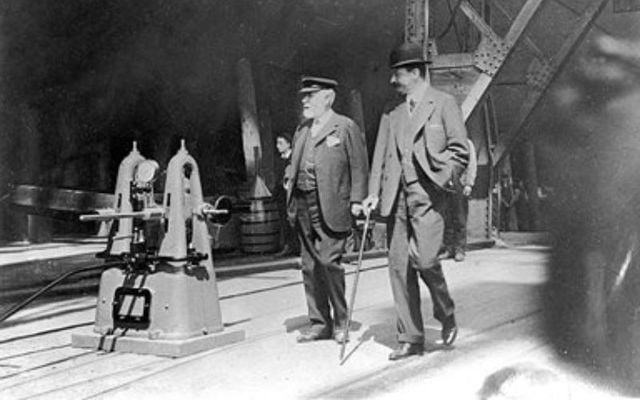HAY fever sufferers spend more than £3,600 on medication over their lifetime - despite some not being convinced they actually work. A poll of 1,000 people with the allergy found 62 per cent will go through up to two boxes of antihistamine tablets per month, with half using the same amount on spray. Advertisement 2 Hay fever sufferers spend more than £3,600 on medication over their lifetime - despite some not being convinced they actually work Credit: SWNS 2 62 per cent will go through up to two boxes of antihistamine tablets per month Credit: SWNS A constant runny nose also means a quarter will go through three or more loo rolls a week during the high-pollen season.
These remedies see them part with around £59 a year, or £3,697 over the average adult lifetime. But despite the vast amount of medication, 28 per cent claim nothing works when it comes to dosing up on tablets and sprays – however, they will continue to buy them regardless. This season though, 24 per cent are considering swapping the tablets and sprays for a purifier as three in 10 reckon it would be less costly than any medication to run.

Advertisement Read More MAGIC MIST I tested three hydrating face mists to see if they can help me fight hayfever NIP IN BUD Warning to millions with hay fever as Met Office issues ‘very high’ pollen alert And 34 per cent think it will do an overall better job in helping them cope with their allergy. A spokesperson for Utilita Energy, which commissioned the research as part of its Power Price List campaign, said: “While many of us look forward to the arrival of spring after a long, cold and gloomy winter, it can bring a sense of dread for those who start sneezing as soon as pollen levels rise. "Our research has revealed almost one in four hay fever sufferers are being proactive in using an air purifier indoors, with the average cost of running an air purifier 365 days a year is £39.
” Of those who have already invested in a purifier, the top reasons for making the switch were seeing positive reviews online (39 per cent), recommendations from family or friends (35 per cent), and concerns over long-term medication use (33 per cent). Advertisement Most read in Health RED FLAG My strange toe symptom I blamed on 'pregnancy niggles' led to a terminal diagnosis Exclusive YOUR FILL New 'Botox' which works INSTANTLY & lasts over 6 months to hit clinics next month Breaking 'HOLE IN OUR HEARTS' Tragedy as popular footballer, 25, dies leaving behind partner & son NHS BOOST Half a million fewer NHS ops and appointments cancelled since Labour won power While 29 per cent switched over caused by frustrations with the effectiveness of existing hay fever medication. For nearly three quarters (72 per cent) of air purifier users, this led to improvements in many of their pollen-induced symptoms.
With 39 per cent claiming the cleaner air helped to unblock their noses, 36 per cent sneezed less than usual, and 30 per cent had relief from a constantly running nose. But of those yet to try using an air purifier, 49 per cent admitted they had simply never thought about it. Advertisement While 64 per cent didn’t know this technology could help reduce their symptoms, the OnePoll.
com survey revealed. Utilita Energy’s spokesperson added: “To help households weigh up the value of using an air purifier, we can confirm the average entry level indoor air purifier costs £90 to buy, and £39 a year to run when using it constantly all year round." Hay fever first aid kit Analyse your symptoms and find the best medication kit for you.
.. Antihistamines Antihistamines (cetirizine or loratadine) work by blocking histamine in the body, which is released when the body detects something it thinks is harmful.
Histamine causes blood vessels to expand and the skin to swell, but in people with hay fever, also causes an allergic reaction. That’s the watering eyes, blocked nose, rashes and so on. Max Wiseberg, airborne allergens expert and creator of HayMax, says that many antihistamines are available on prescription, such as Telfast, which you can see your GP for or get through an online doctor, such as LloydsPharmacy.
Telfast, and other prescription-only antihistamine tablets, work in the same way as over-the-counter antihistamines, but are stronger and intended to help with more severe symptoms. “Get your prescription in advance of the season so you have your medication in time to start taking it at the right time,” he says. “Some are best taken at least one month before the hay fever season starts.
" Nasal sprays A nasal spray can be effective in controlling congestion and stuffiness. Pharmacists can advise on nasal sprays (sodium cromoglicate, ipratropium bromide or decongestant), and eye drops, too. Nasal sprays can also help with other symptoms of hay fever “because the medicine is targeted directly to the nose, which is where the vast majority of allergens enter the body”, Max says.
Independent pharmacist Rita Ghelani says: “Try Xlear nasal spray, which contains xylitol, and has anti-bacterial properties and keeps the nasal lining moist. “If symptoms are more severe, then try an anti-inflammatory nasal spray – sometimes referred to as a steroid nasal spray – which can take a few days to work. “Start with one that contains beclomethasone, which is used twice a day, in the morning and at night.
” Rita also advises cleaning the nose with a saline nasal spray before a steroid spray, saying: “It will remove sticky mucus from the nasal passage, thus improving the effectiveness of the medication.” Eye drops If itchy eyes are your primary concern, Rita says: “Try using sodium cromoglicate eye drops. "These make the eyes less sensitive to allergens such as pollen and reduce irritation.
"They need to be used four times a day to keep the levels of the active ingredient high enough to be effective. "Keep using them even if symptoms improve. “Using a good eye drop to lubricate the eyes may also help with dry eyes during the summer months.
”.
















